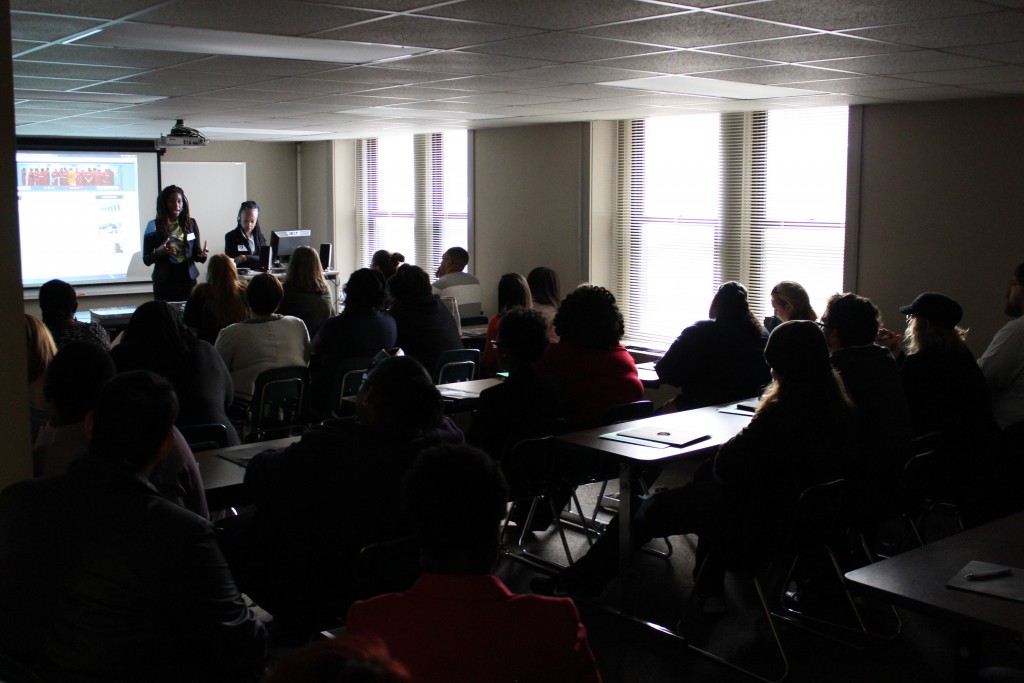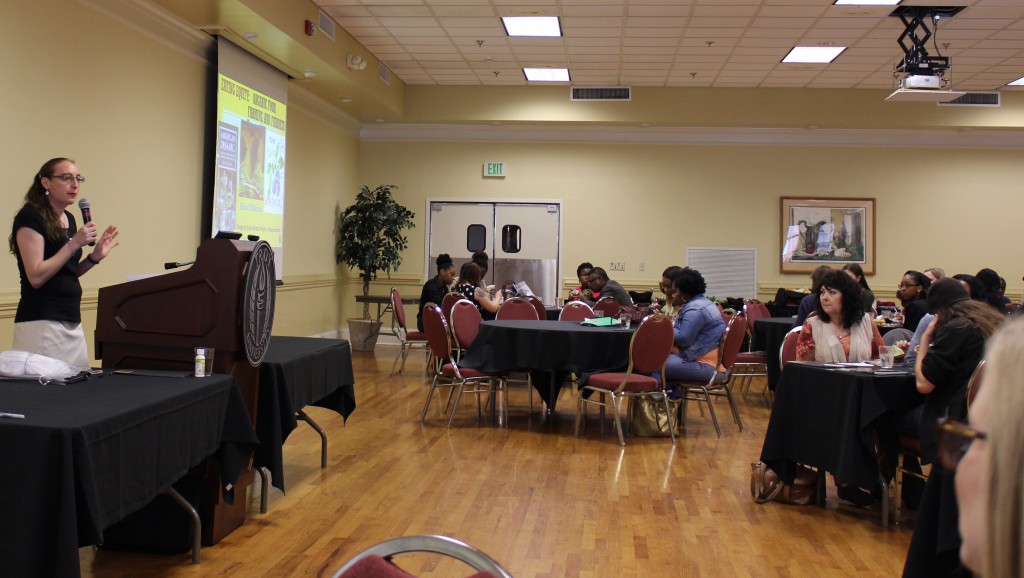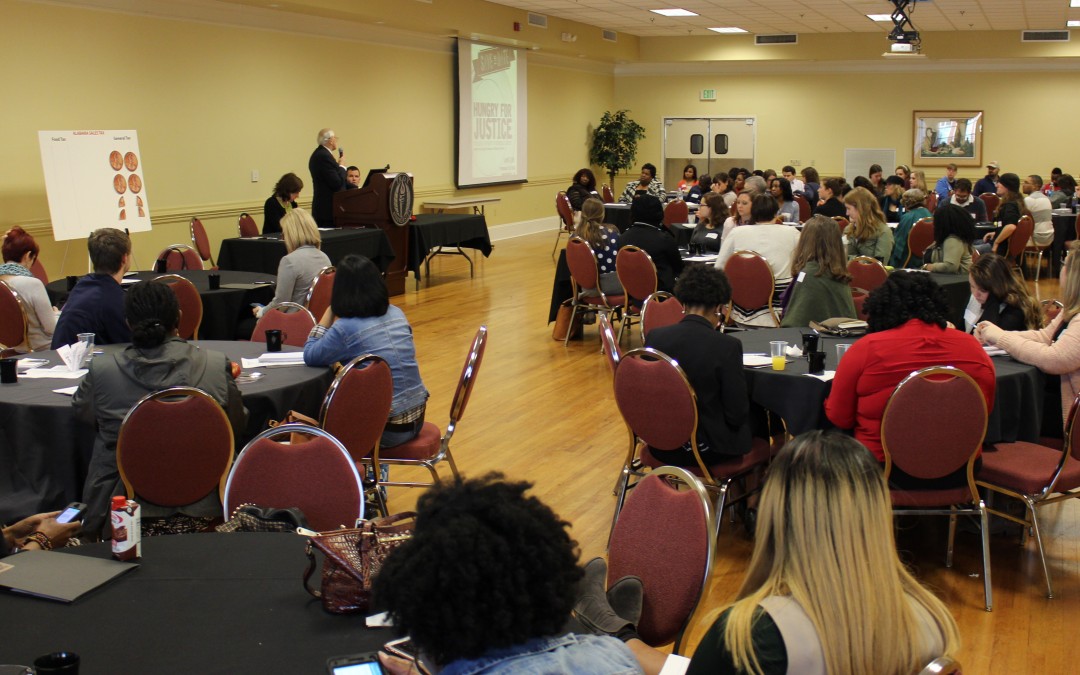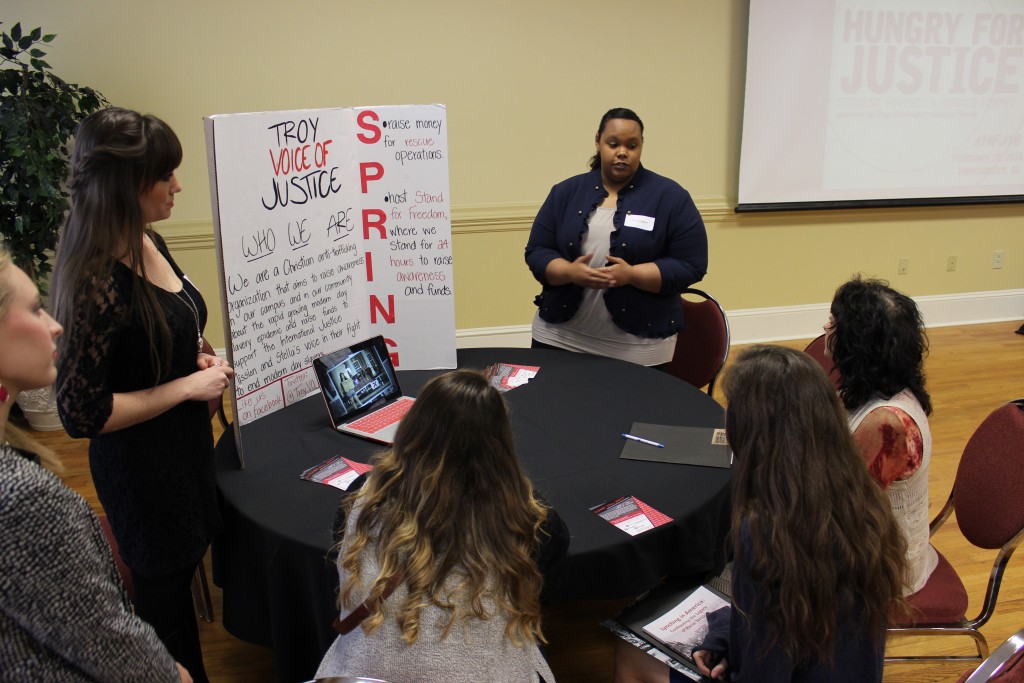Speakers at Hungry for Justice 2016 focused on how poverty and hunger impact communities throughout Alabama and identified ways for students to advocate for change. Over 80 college students, faculty, staff, and community partners were in attendance on February 19, for the second annual summit at Troy University-Montgomery.
After an introduction from Dr. John Dew, Senior Vice Chancellor for Student Services and Administration at Troy University, State Senator Gerald Dial opened up the morning with a presentation of his plan to remove the state sales tax on groceries. Heartened by the turnout, Senator Dial insisted students stay engaged. He told attendees that legislators often have schedules of general practitioners addressing multiple issues each day. He encouraged students to become advocates of issues like poverty and hunger and to remind legislators that they impact their constituents.

Equal Justice Initiative’s Estelle Hebron-Jones & Jennifer Taylor discuss race, poverty, and mass incarceration
Attendees then had an opportunity to choose their own courses of conversation among back-to-back community organization-led breakout sessions. Session topics ranged from human trafficking, advocacy and public education, racial inequality and economic injustice, and ensuring justice while addressing hunger.

Troy University-Dothan Lecturer Robin O’Sullivan presents “Eating Equity: Organic Food, Farming, and Fairness”
Dr. Robin O’Sullivan, a lecturer in the History and Philosophy Department at Troy University-Dothan, provided our lunch keynote discussing the organic food movement in America, focusing on the capacity of individuals within a concerted movement to effect systemic change. She said that activists shaped culture and policy through their involvement within institutions and communities and ushered in a major shift in our nationalized food system. However, Dr. O’Sullivan suggested that there is still much work to be done to ensure equitable access to organic foods.
Students also had a chance to present their campus efforts to understand and address issues such as place and poverty, educational attainment and opportunity, human trafficking, and community gardening.
During our campus reflection and debrief, Troy University students from across the three campuses discussed the need for student-to-student outreach in order to build a broader Troy community. Students suggested leveraging major connections across the Troy network in order to connect to community organizations already involved in issues of poverty and hunger.
Alabama State University students and faculty discussed their presence within the Montgomery community. Students from ASU focused on capitalizing on their proximity to much of these issues in Montgomery by using university resources to cultivate broader community engagement beyond campus.
Auburn University students discussed the potential for apathy due to the overwhelming number of engagement opportunities for students. Auburn attendees suggested that collaboration among similar groups would lead to more effective service and a lesser likelihood of students becoming disengaged over large issues.
Birmingham-area students from the University of Montevallo and UAB noticed significant overlap throughout their debrief. University-to-university collaboration provided rich ground for discussion of issues in the metro area. Further, both campuses agreed that students do not need to wait for critical mass to gather and become engaged, but that there is value in starting with a small, concerted group and growing.
The Hungry for Justice Summit put on display the vibrant and hopeful efforts of our Higher Education Alliance members to understand Alabama’s barriers to prosperity and to leverage campus resources in service to the greater community.
Thanks to Troy University-Montgomery Campus for hosting the summit. Thanks also to our keynote and breakout speakers from organizations and universities including: Alabama Arise, EAT South, Alabama State University, Equal Justice Initiative, Alabama School Readiness Alliance, and Troy University.
For session topics see the agenda below.

